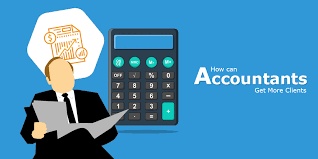The Government of India has provided certain legitimate means through which eligible individuals can save income tax professional. As the end of the financial year approaches, we often see people frantically skimming through piles of paperwork in their bid in order to prepare the required documentation for getting tax exemption. There are several ways to avail tax exemption. For example, one can avail tax benefit through donations. Then, investing in various government schemes, insurance policies, etc. also makes the individual liable for getting requisite tax exemption.
Below we discuss some major ways through which you can save tax:
This is one of the most convenient ways to bring down tax deduction. These days, most good employers permit restructuring of salary
Following are some steps you can take:
Opt for food coupons like Sodexo which are eligible for tax exemption. These coupons can also be used for making grocery and other household purchases.
Include medical allowance, transport allowance, education allowance, uniform expenses (if any), and telephone expenses as part of salary. You will, of course, have to produce original bills to claim these allowances.
You can also go ahead and support an NGO and get the amount debited directly from your salary. Donate to a charity through your salary and get tax-exemption under section 80 G of the Income Tax Act.
If you’re living in a rented accommodation, then you can claim income tax deduction on the amount you pay as your house rent. This deduction is provided under section 80 GG of the Income Tax Act. If you do not receive House Rent Allowance (HRA) in your salary, then the least of the following could be claimed under that section:
• 25 per cent of the total income or
• Rs 2,000 per month or
• Excess of rent paid over 10 per cent of total income
If HRA is a component of your salary, then the minimum of the following three is available as exemption:
• The actual HRA received from your employer
• The actual rent paid by you for the house, minus 10 per cent of your salary (this includes basic dearness allowance,if any)
• 50 per cent of your basic salary (for a metro) or 40 per cent of your basic salary (for non-metro)
It goes without saying that you will have to produce original tax receipts and the landlord’s PAN details if the annual rent is over INR 1,00,000.
This is one way through which you can not only avail tax exemptions, but you can also contribute your bit to the betterment and upliftment of the society. Amounts given for philanthropic work and serving the needy are eligible for tax exemption. Money donated to eligible trusts, charitable institutions and approved educational institutions qualifies for deduction under Section 80G.
A Final Word
Do bear in mind these important points to do a smooth tax planning:
• Give your employer the details of investment and other income tax-related savings in advance. This will prevent any additional deduction in the form of TDS.
• Scrutinize Form 16 provided by your employer every year. See if there are any discrepancies.
• Begin your tax planning much before March 31. It’s not advisable to wait for the last minute.
source Links:- Income Tax


No comments yet